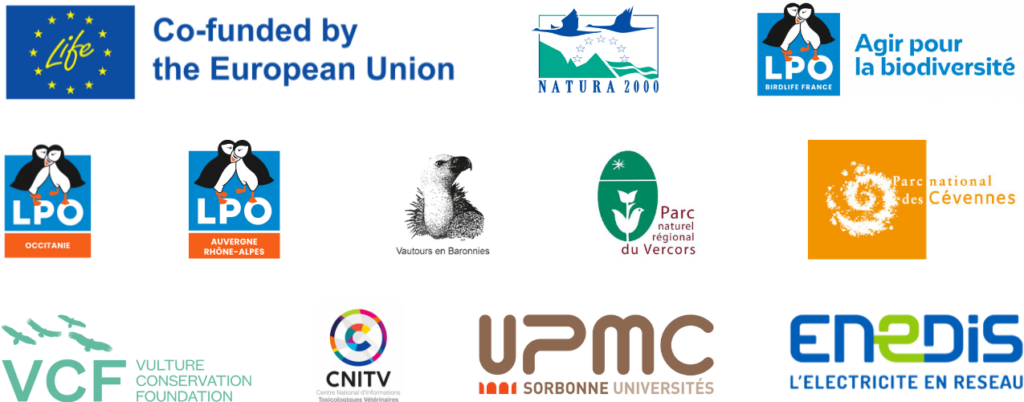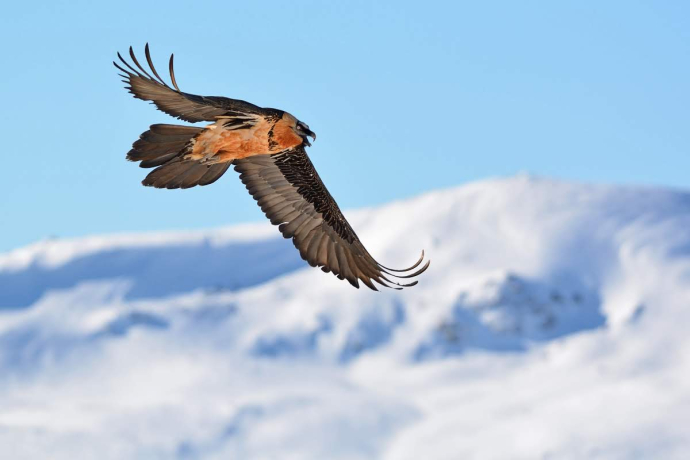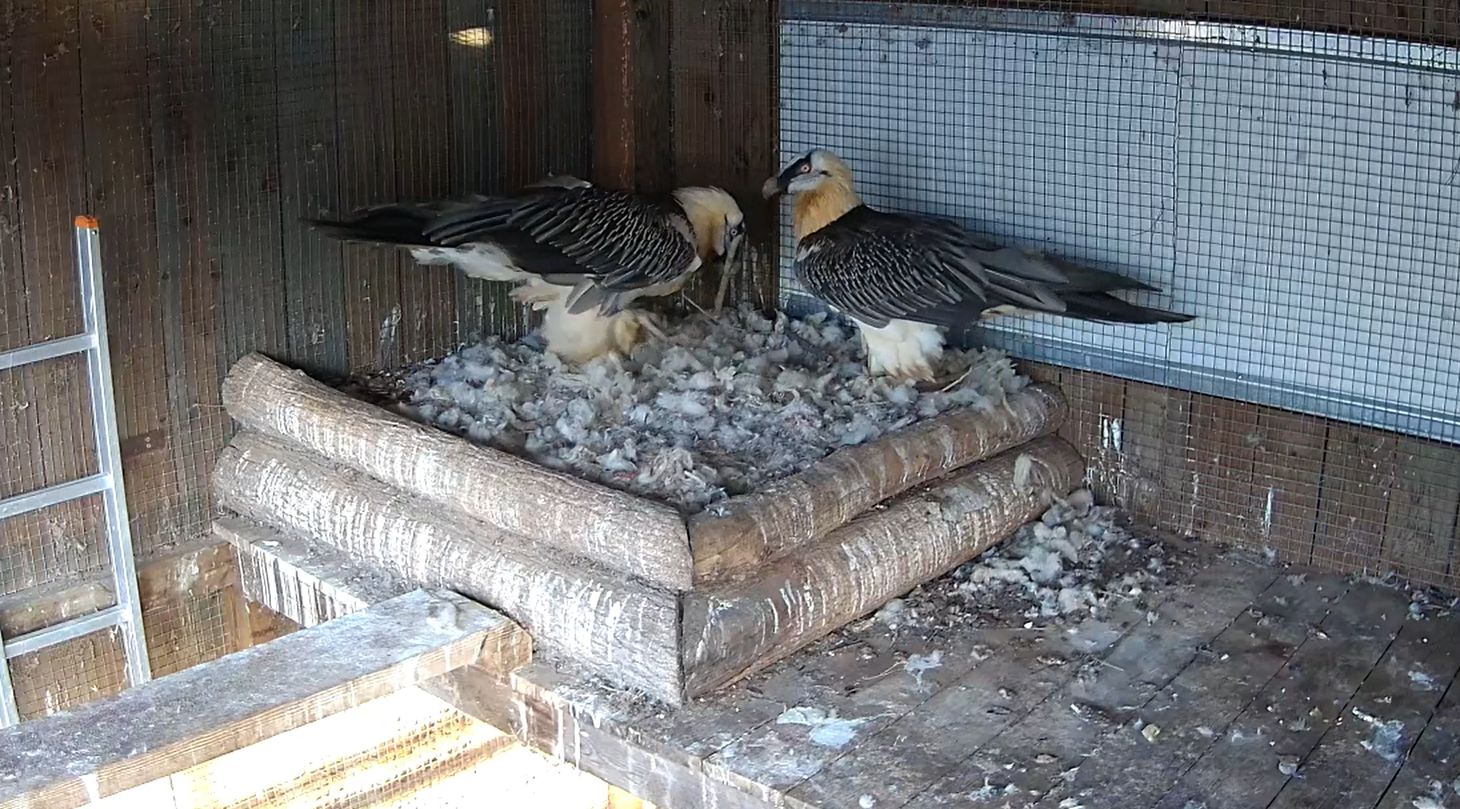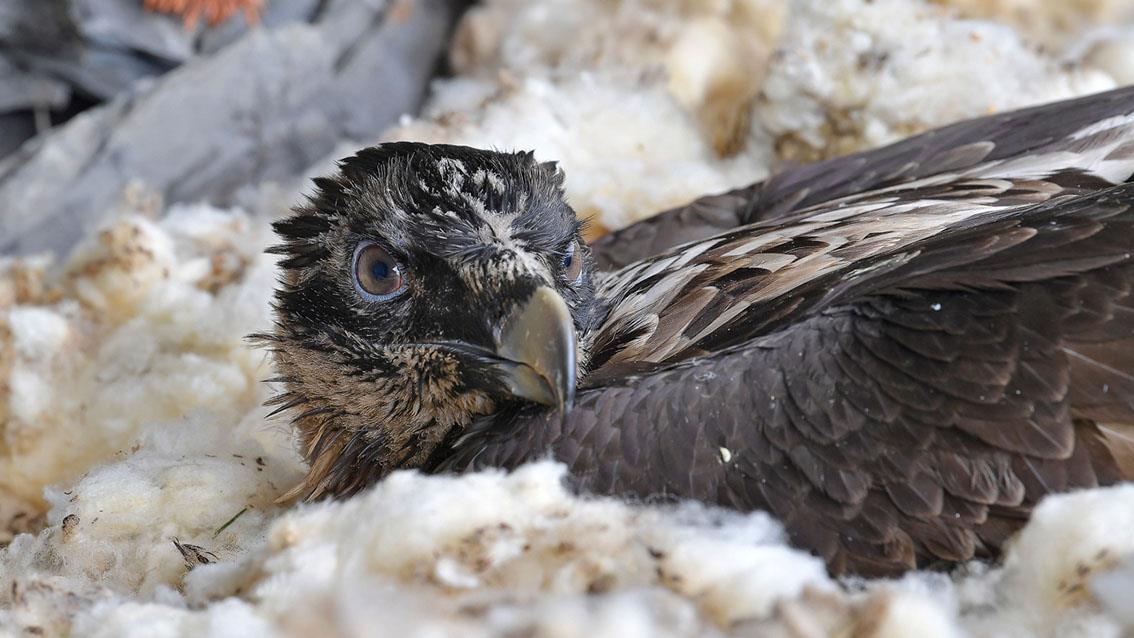An unexpected and thrilling update has just arrived from the French mountains: Clapas, a Bearded Vulture (Gypaetus barbatus) that was missing for a long time, has returned- and with exciting news!
Clapas, a male Bearded Vulture, hatched in 2018 at the Haringsee breeding centre in Austria – one of the most important breeding centres within the Bearded Vulture EEP network. He was released later that year in the Baronnies, France as part of the LIFE GypConnect project – the precursor to today’s LIFE Gyp’Act project.
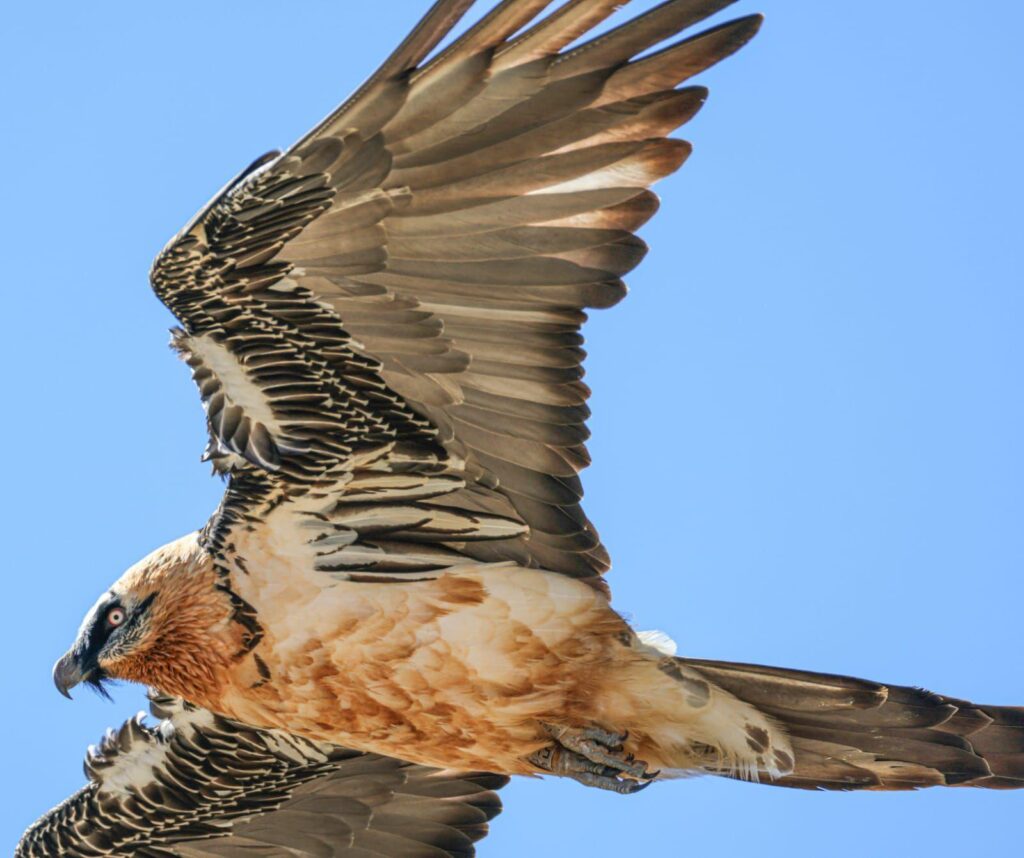
The disappearance of a signal
Like all reintroduced birds, he carried identification rings and a GPS transmitter to monitor his early years in the wild. In 2020, Clapas’ GPS transmitter stopped sending data. With no further information, his fate became uncertain. Confirmation would have required a clear reading of his leg rings — a difficult task in a species whose thick feathers often conceal them.
In 2022, a plumage-based observation hinted that Clapas might still be alive. Yet without a confirmed ring reading, conservationists could only speculate. As time passed, hope slowly waned.
A remarkable return
At the beginning of November 2025, a new photograph brought the uncertainty to an end: the Bearded Vulture observed was indeed Clapas. Even more exciting, he has now settled in the Écrins massif — and is nesting there. After five years without verified contact, Clapas has not only survived but reached a crucial milestone: claiming a territory as a potential this future breeder.
What a great moment to celebrate! We look forward to following his development in the Écrins massif in the years to come.

LIFE Gyp’Act is a 13M€ project, co-funded by the EU’s LIFE programme, that will run until 30 November 2028. Project partners are LPO – Ligue pour la Protection des Oiseaux as coordinator beneficiary, and the Vulture Conservation Foundation, Association Vautours en Baronnies, LPO Auvergne-Rhone-Alpes, LPO Occitanie, Sorbonne Université, ENEDIS, Centre National d’Informations Toxicologiques Vétérinaires, Parc National des Cévennes e Parc Naturel Régional du Vercors as associated beneficiaries.
Building on the success of LIFE GypConnect, the LIFE Gyp’Act project aims to further consolidate the Bearded Vulture population in the region, ensuring connectivity between the Pyrenean and Alpine populations. LIFE Gyp’Act seeks to reintroduce 60 Bearded Vultures to key areas, mitigate primary threats, and improve food availability. The project leverages decades of expertise in captive breeding and strong regional partnerships to achieve these goals. By engaging local communities and stakeholders, LIFE Gyp’Act aims to create a sustainable environment where Bearded Vultures can thrive, contributing to the overall biodiversity and ecological health of the region.
